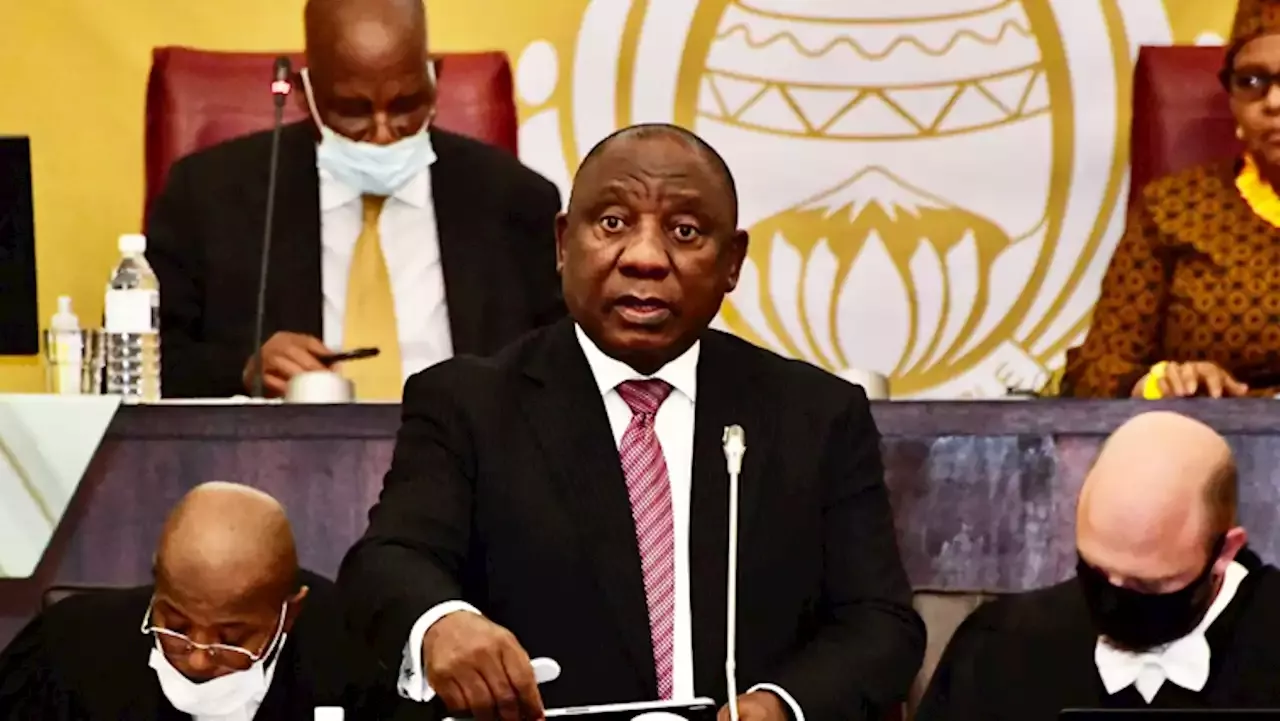

President Cyril Ramaphosa has assured the public that the government will fully account for the taxpayer money spent on helping those impacted by the recent flooding in KwaZulu-Natal.
Addressing parliament on Tuesday (26 April), Ramaphosa said officials must ensure that all the funds used to respond to this disaster are spent effectively.
“It is a great source of shame that when this disaster struck, the most burning public debate was around fears that the resources allocated to respond to this disaster would be misappropriated or wasted. This shows us just how tired the people of South Africa have become of corruption,” he said.
“It is a stern reminder to all of government and to businesses providing goods and services that the people of South Africa will not stand for acts of self-enrichment at the expense of those who have already lost so much.”
Ramaphosa confirmed that the auditor-general would conduct real-time audits on the emergency flood relief funds.
He said this would provide independent assurance on whether public funds have been appropriately accounted for and used for their intended purpose.
“These audits aim to prevent, detect and report on the findings to ensure an immediate response to prevent leakage, potential fraud and wastage.
“They will equip accounting officers and accounting authorities to act quickly on weaknesses in controls and prevent further losses. They will also enable immediate oversight and consequence management.”
He said the National Treasury is also strengthening reporting requirements concerning expenditure on disaster relief.
“To improve monitoring and ensure greater transparency, the details of all disaster-related procurement by public institutions will be published on the Treasury website to allow public scrutiny of these procurement transactions.”
Counting the costs
From the 8th to the 13th of April, the coastal parts of KwaZulu-Natal experienced heavy rainfall, causing severe damage in the eThekwini metro and the districts of King Cetshwayo, iLembe, Ugu and Umgungundlovu. Notably, the eThekwini metro received around 30% of its annual rainfall in one 24-hour period, Ramaphosa said.
The latest figures presented by the president show that:
At least 435 people have lost their lives due to the flooding;
There are 54 people still missing or unaccounted for;
Over 5,700 houses have been destroyed, and nearly 10,000 houses have been partially damaged;
Around 630 schools have been affected, and over 100 schools are not accessible at present;
The economic damage is substantial, notably to the Port of Durban, one of the continent’s busiest ports. The supply of essential services has been disrupted, leaving homes, schools and businesses without water and electricity;
In the Eastern Cape, the districts of Alfred Nzo, Chris Hani, Joe Gqabi and OR Tambo bore the brunt of the flooding. At least two people lost their lives in the flooding, three people were injured, and around 1,000 people were affected by the destruction of houses and other losses;
Similar damage was experienced in the North West province, affecting the districts of Bojanala, Dr Ruth Segomotsi Mompati, Dr Kenneth Kaunda and Ngaka Modiri Molema. A total of 1,535 houses have been damaged by heavy rainfall in the province.
Ramaphosa said that the government is now responding to this disaster in three overlapping phases.
The first of these phases is focused on humanitarian assistance, ensuring that all affected persons are safe and that their basic needs, like food and water, are met.
The second phase of the response is stabilisation and recovery. This involves rehousing people who have lost homes and restoring the provision of services.
The third phase of the response is focused on reconstruction and rebuilding. Engineers have been deployed from public and private entities – and from several other provinces – to assist with technical assessments of the damage to infrastructure and to advise on immediate and longer-term measures to repair and rebuild.
“The effects of this tragedy will be felt for a long time to come. The trauma of losing loved ones, homes and businesses will take a long time to heal. Over the past few years, we have found ourselves at a crossroads many times. We have found ourselves feeling helpless and hopeless,” he said.
“Our nation’s resilience has always been its shield, and our ability to unite in times of crisis has been our greatest strength.”
|